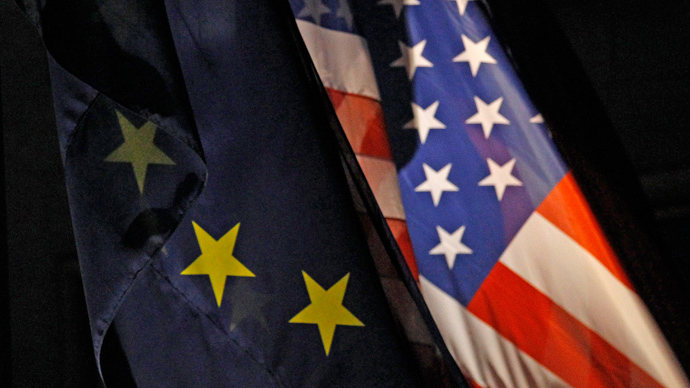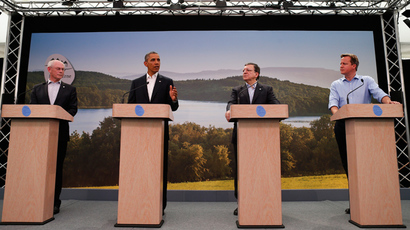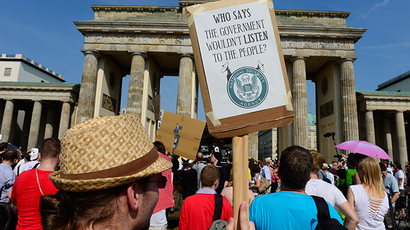Historic trade deal with Europe moves forward, despite US snooping

The US –EU transatlantic trade deal, will go to a second round of talks in mid- November, but could hit a stumbling block over Germany’s demand for data protection as a condition to signing the treaty.
The EU and US policymakers agreed to hold two more rounds of trade negotiations over the next two months, The Wall Street Journal reports. The first round will take place in Brussels on November 11-15 and cover investment and energy sector trade, as well as address regulatory issues. In December officials will congregate in Washington DC for another round of talks.
After learning about the NSA special surveillance program on more
than 80 embassies and consulates worldwide, including German
government offices and Chancellor Angela Merkel’s personal
cell phone, Germany has pushed for tough data
protection goals before the free trade pact is finalized.
US still hasn't provided any guarantees it will curb spying on its allies.
First talks were held on July 8 in Washington DC.
Originally the second round of talks were scheduled for October
7-11 in Brussels, but were delayed due to the US government
shutdown.
The Transatlantic Trade and Investment Partnership (TTIP), which
has the potential to boost economic growth by $100 billion per
year in reduced tariffs, was agreed on at the G8 summit
in Northern Ireland in June.
Shortly after, NSA whistleblower Edward Snowden leaked information showing the extent of US espionage on allies abroad. In response, France and other EU members said there could be no trade negotiation unless the US could guarantee it would halt spying operation on EU allies.
The “once in a generation prize” could add as much as
about $157 billion to the EU economy, over $125 billion to the US
economy and as much as around US$ 133 billion to the rest of the
world, UK Prime Minister David Cameron said at the G8 summit.
Over 98 percent of EU tariffs would be eliminated under the
accord.
President Obama said the 'economic NATO', which would be the
world’s largest trade agreement, is a priority for his
administration and will hopefully be signed by the end of 2013.
EU diplomats traveled to Washington to discuss the NSA spy
fallout, but weren’t satisfied with the answers they received,
which failed to justify the eavesdropping on EU leaders by the
US.
The trade deal could be a vital economic turnaround for the 28 EU
members, which are just starting to emerge from recession. In
2012, the EU’s economy was $17 trillion, according to Eurostat.
In the aftermath of extending bilateral trade ties, the deal is due to cover about 50 percent of global economic output, 30 percent of global trade and 20 percent of global foreign direct investment.
On November 1, Germany and Brazil submitted a new draft resolution to the UN
General Assembly which calls for an end to excessive electronic
surveillance, data collection, and other snooping techniques.














